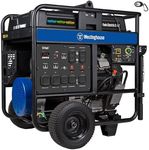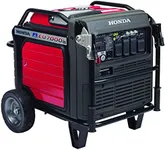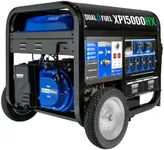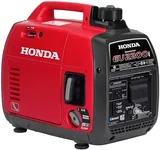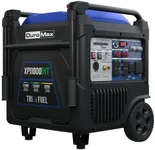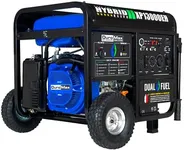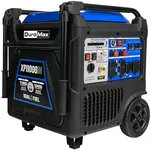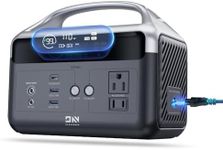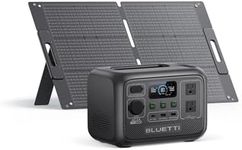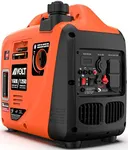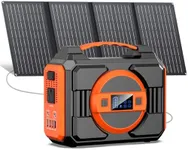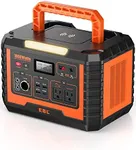Buying Guide for the Best Portable Generators Rating
Choosing the right portable generator can be a daunting task, but with the right approach, you can find a model that perfectly suits your needs. Portable generators are essential for providing power during outages, for outdoor activities, or for use on job sites. To make an informed decision, you need to understand the key specifications and how they relate to your specific requirements. Here’s a guide to help you navigate through the important specs and choose the best portable generator for you.Power Output (Wattage)Power output, measured in watts, indicates how much electricity the generator can produce. This is crucial because it determines what and how many devices you can power simultaneously. Generators typically range from 1,000 to 10,000 watts. For light use, such as camping or running small appliances, a generator with 1,000 to 2,000 watts is sufficient. For home backup during outages, look for 3,000 to 5,000 watts. For heavy-duty use, such as on construction sites, you may need 6,000 watts or more. Assess your power needs by listing the devices you plan to run and their wattage requirements.
Fuel TypePortable generators can run on various fuels, including gasoline, propane, and diesel. Gasoline is the most common and widely available, but it has a shorter shelf life and can be less efficient. Propane is cleaner and has a longer shelf life, but it requires a separate tank. Diesel is more efficient and has a longer lifespan, but diesel generators are typically more expensive and noisier. Choose a fuel type based on availability, storage, and your specific use case. For occasional use, gasoline might be convenient, while for long-term or frequent use, propane or diesel could be more practical.
Run TimeRun time refers to how long the generator can operate on a full tank of fuel. This is important for ensuring continuous power without frequent refueling. Run times can vary significantly, from a few hours to over 12 hours. For short-term use, such as during a camping trip, a generator with a 4-6 hour run time may be adequate. For home backup or extended use, look for models with 8-12 hours or more. Consider your typical usage duration and choose a generator that can meet your needs without constant refueling.
PortabilityPortability is a key factor, especially if you plan to move the generator frequently. This includes the weight, size, and design features like wheels and handles. Lightweight generators (under 50 pounds) are ideal for camping and light use. Medium-weight generators (50-100 pounds) are suitable for home backup and moderate use. Heavy-duty generators (over 100 pounds) are best for job sites and heavy use but should have wheels and handles for easier transport. Assess how often and where you will move the generator to determine the right level of portability.
Noise LevelNoise level, measured in decibels (dB), indicates how loud the generator will be during operation. This is important for comfort and compliance with noise regulations. Generators can range from 50 dB (quiet) to over 80 dB (loud). For camping or residential use, a quieter generator (50-60 dB) is preferable to avoid disturbing others. For job sites, noise may be less of a concern, so a louder generator (70-80 dB) might be acceptable. Consider where you will use the generator and choose a noise level that suits your environment.
Outlets and ConnectivityThe number and type of outlets determine what devices you can connect to the generator. Common outlets include standard 120V household outlets, 240V outlets for larger appliances, and USB ports for charging electronics. Some generators also offer RV-ready outlets or twist-lock outlets for secure connections. Assess your power needs and ensure the generator has the appropriate outlets for your devices. For example, if you need to power an RV, look for a model with an RV outlet. For home use, ensure there are enough 120V outlets for your appliances.
Safety FeaturesSafety features are crucial for preventing accidents and ensuring safe operation. Key features include automatic shutoff for low oil levels, overload protection, and carbon monoxide detectors. These features help protect both the generator and the user. For home use, especially in enclosed spaces, a generator with a carbon monoxide detector is essential to prevent poisoning. For general use, look for models with automatic shutoff and overload protection to ensure safe and reliable operation. Prioritize safety features based on your usage environment and potential risks.
